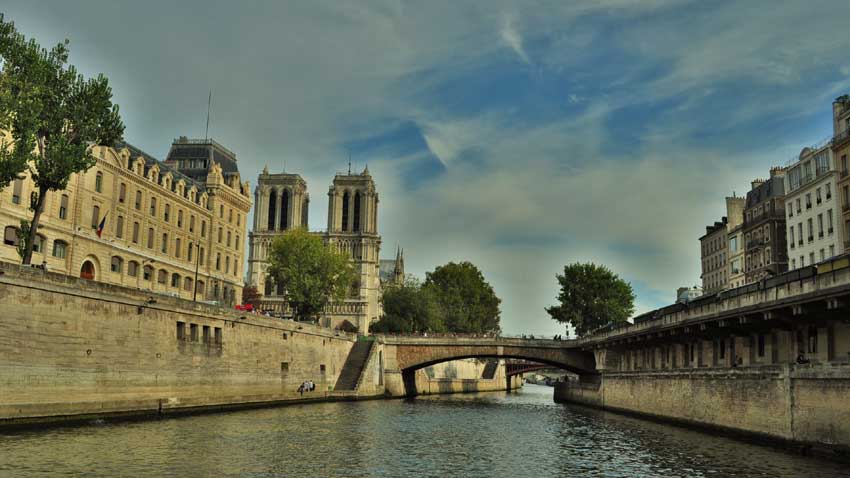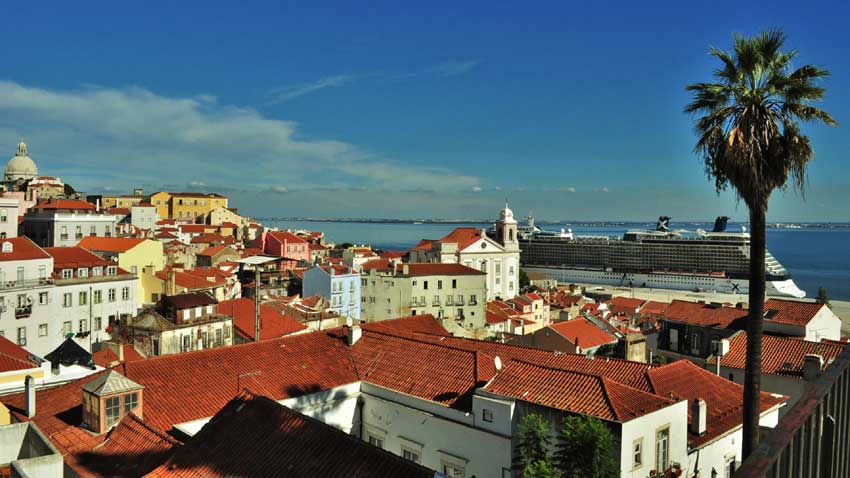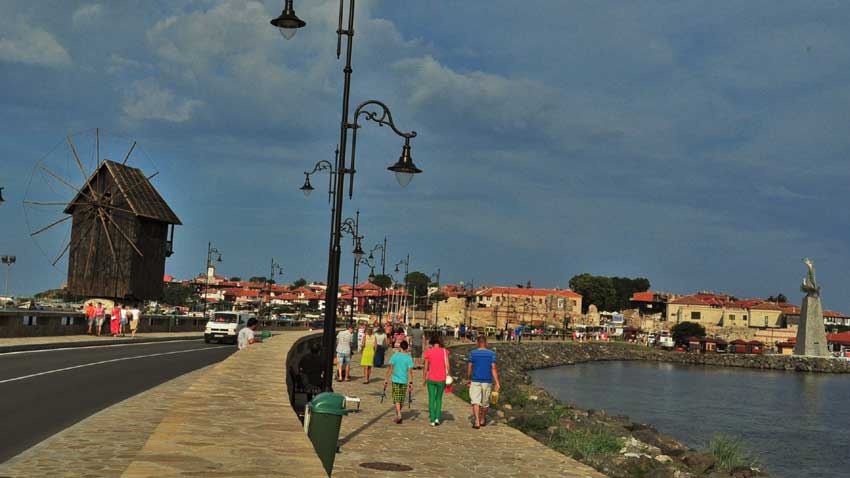The modern world is going through two powerful revolutions that have changed our life for good – in the IT sector and in tourism. That is what Secretary-General of the United Nation's World Tourism Organization /WTO/ Taleb Rifai says. The foreign expert is on an official visit to this country, in order to hand an open letter to the Bulgarian government, demanding support for tourism, which is an important branch of the economy. Such a document has already been given to 61 countries.
 WTO research shows that back in the 1950s, no more than 22 mln. people travelled around the world. 75 percent of the population never left their birthplace within a radius of 100 km. People were born and died without ever travelling away from their village or town. However, this planet has changed fundamentally and… has grown smaller. Latest WTO data speak for themselves, showing that in 2013 international tourism marked a 5 percent growth, despite the economic crisis, while one in seven people crossed some national border. “This means over 1 bln. travelers! Picture now the way our contact with these different cultures and countries has changed the way we think!” said Taleb Rifai during his doctor honoris causa ceremony at the University of National and World Economy in Sofia. Tourism has become a huge industry over the past two decades, generating billions of USD and creating new jobs, thus helping poorer countries open up to the world. Until recently, Germany was top of the list, but now China has taken over, followed by Russia – 98 mln. and 55 mln. tourists respectively going abroad last year. Information technologies are also having their say – nowadays one in three peple plan their next travels via the internet, without agencies or tour operators. Social media on the other hand changed the way different tourist products are advertised and sold on the market. Everyone now publishes photos and shares opinion of the places they have visited. New technologies have changed the rules of the game entirely. At the same time the modern tourist knows more, wants to learn more and needs total emersion in the atmosphere of a given country – communicating with the locals, tasting their cuisine etc. Mass tourism is being supplanted more and more by cultural tourism, outdoor adventure among nature and others. The age of the tourists has changed as well – it now takes very little for young and old to hit the road. Large and colorful groups of retired men and women are into their second youth, wandering around the remotest spots on Earth. What about the young? WTO data says that each year over 330 mln. young people, aged under 28, travel abroad. Nowadays it is not only the wealthy but oractically anyone everyone can go globetrotting.
WTO research shows that back in the 1950s, no more than 22 mln. people travelled around the world. 75 percent of the population never left their birthplace within a radius of 100 km. People were born and died without ever travelling away from their village or town. However, this planet has changed fundamentally and… has grown smaller. Latest WTO data speak for themselves, showing that in 2013 international tourism marked a 5 percent growth, despite the economic crisis, while one in seven people crossed some national border. “This means over 1 bln. travelers! Picture now the way our contact with these different cultures and countries has changed the way we think!” said Taleb Rifai during his doctor honoris causa ceremony at the University of National and World Economy in Sofia. Tourism has become a huge industry over the past two decades, generating billions of USD and creating new jobs, thus helping poorer countries open up to the world. Until recently, Germany was top of the list, but now China has taken over, followed by Russia – 98 mln. and 55 mln. tourists respectively going abroad last year. Information technologies are also having their say – nowadays one in three peple plan their next travels via the internet, without agencies or tour operators. Social media on the other hand changed the way different tourist products are advertised and sold on the market. Everyone now publishes photos and shares opinion of the places they have visited. New technologies have changed the rules of the game entirely. At the same time the modern tourist knows more, wants to learn more and needs total emersion in the atmosphere of a given country – communicating with the locals, tasting their cuisine etc. Mass tourism is being supplanted more and more by cultural tourism, outdoor adventure among nature and others. The age of the tourists has changed as well – it now takes very little for young and old to hit the road. Large and colorful groups of retired men and women are into their second youth, wandering around the remotest spots on Earth. What about the young? WTO data says that each year over 330 mln. young people, aged under 28, travel abroad. Nowadays it is not only the wealthy but oractically anyone everyone can go globetrotting.
 However, the most serious change connected with the tourist boom is in our way of thinking. “What I mean here are the appeals for sustainable development and our care for the Earth. Today’s traveler wants a clean conscience,” Prof. Rifai says, adding that those, involved in the sector, should follow the sustainability principles. That was why he was pleasantly surprised by the new strategy for the development of tourism in Bulgaria over the 2014 – 2030 period. “The document clearly states that you should stop concentrating on sea tourism and this overdevelopment of your resorts and should aim at alternative tourism,” Prof. Rifai says. It is quite another matter how and who will implement the strategy so that Bulgaria's nature may be preserved. This country is unique, the WTO chair says and adds:
However, the most serious change connected with the tourist boom is in our way of thinking. “What I mean here are the appeals for sustainable development and our care for the Earth. Today’s traveler wants a clean conscience,” Prof. Rifai says, adding that those, involved in the sector, should follow the sustainability principles. That was why he was pleasantly surprised by the new strategy for the development of tourism in Bulgaria over the 2014 – 2030 period. “The document clearly states that you should stop concentrating on sea tourism and this overdevelopment of your resorts and should aim at alternative tourism,” Prof. Rifai says. It is quite another matter how and who will implement the strategy so that Bulgaria's nature may be preserved. This country is unique, the WTO chair says and adds:
 According to Taleb Rifai people will travel more and more. Tourism is a passion that has altered our lives and there is no stopping it. It’s up to us to try and turn this powerful industry towards sustainable development, protecting the planet, or we can let our consumer’s drive destroy our home – the Earth.
According to Taleb Rifai people will travel more and more. Tourism is a passion that has altered our lives and there is no stopping it. It’s up to us to try and turn this powerful industry towards sustainable development, protecting the planet, or we can let our consumer’s drive destroy our home – the Earth.Photos: Veneta Nikolova
English version: Zhivko Stanchev
Over 3,200 participants and guests of different ages and nationalities filled the Summer Theater in Burgas for the opening of the 9th edition of the European Gymnastics Festival for people over fifty - Golden Age Gym Festival 2024 . The festival..
"Bulgaria - magnetic and beautiful" - under this title Bulgarian travel bloggers present some of the most photogenic places in this country. The exhibition with unique images taken by the travelers will be opened on September 24 at the entrance of the..
Bulgaria will take part in the International French Travel Market (IFTM) Top Resa 2024 , which starts today, and will continue until September 19 . Participation in Bulgaria's information stand, which will have an area of 85, 5 square meters, has..
The old button lift in the village of Govedartsi , Samokov Municipality, which takes tourists to the peak of Malyovitsa in the Rila Mountains, is to be..

+359 2 9336 661
